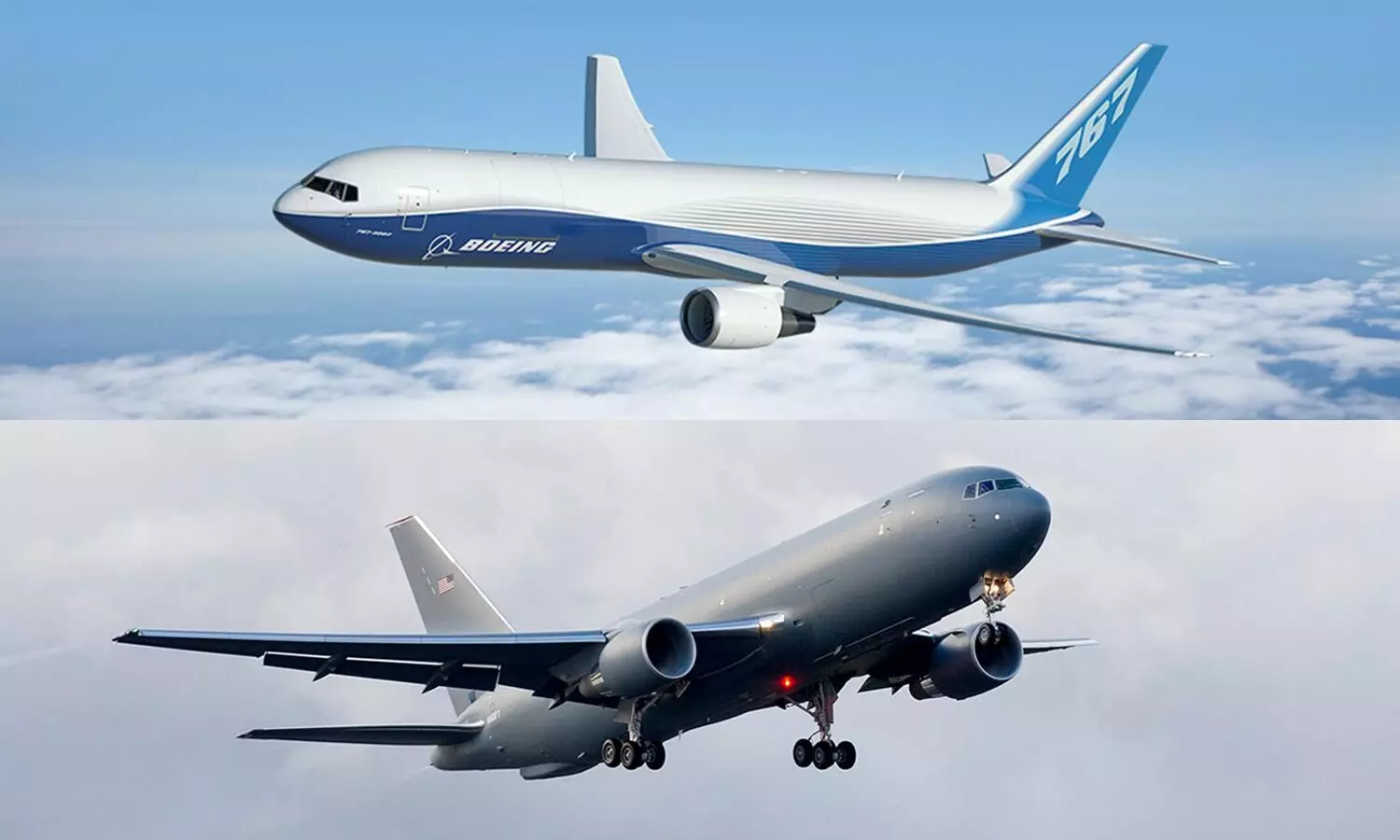
Boeing to shift 767F line to 767-2C; no impact on 767F operations
According to the latest orders and deliveries report, Boeing has 35 unfilled 767 freighter orders: 10 from FedEx, 17 from UPS, and 8 unidentified.

The Federal Aviation Administration (FAA) Reauthorisation Act of 2024, signed into law on May 16, grants an exemption for new Boeing 767-300 freighters from FAA emissions requirements until 2033. However, the American aircraft manufacturer has already announced plans to end production of the 767-300F in 2027.
In a response to The STAT Trade Times, a Boeing spokesperson discussed the Boeing 767-300 freighter programme, highlighting the company's plans for the 767F and its next-generation aircraft, the Boeing 777-8F.
The spokesperson stated that the Boeing 767 team currently manufactures both the 767 freighter and 767-2C aircraft on the same production line at the company's Everett, Washington, facility. However, starting in 2027, the programme will shift exclusively to producing 767-2C aircraft to support the KC-46A tanker programme.
When asked how Boeing would handle production if new orders for the 767F were received between now and 2027, particularly given the emissions-related challenges after 2027, the spokesperson confirmed that the company would complete and deliver all remaining 767 freighter orders and wrap up production by 2027.
According to Boeing’s most recent orders and deliveries data as of January 31, 2025, Boeing has 35 unfilled orders for the Boeing 767 freighter. Of these, 10 orders are from FedEx Express, 17 from UPS, and 8 from an unidentified customer.
In Section 1105: Limitations for certain cargo aircraft of the FAA Reauthorisation Act, the exemption applies to a subsonic jet that is a purpose-built freighter with a maximum takeoff mass between 180,000 and 240,000 kilograms and a type design certificated before January 1, 2023. The Boeing 767-300F falls within this definition as outlined by lawmakers, allowing Boeing to continue its production until 2033.
However, the 767F does not comply with the stricter environmental standards set by the Environmental Protection Agency (EPA) and other regulations for new aircraft, which will take effect in 2028.
The FAA's fuel efficiency regulations align with the standards set by the International Civil Aviation Organisation (ICAO). However, while the ICAO standards do not provide an exemption for the 767F, they apply to airplane production rather than operation. As a result, there will be no impact on the existing fleet. It was previously believed that new 767Fs built from 2028 would be restricted to operating within the U.S., but this will not be the case. According to ICAO, under the 1944 Convention on International Civil Aviation, each country holds the exclusive authority to regulate air transport within its own borders, including the application of the technical standards and recommendations outlined in ICAO's annexes.
In other words, ICAO sets the global standards, but individual countries have the authority to enforce and manage them within their own airspace.
While mentioning the new 777-8F, the spokesperson said, “Boeing is designing the new 777-8 freighter to efficiently serve the breadth of the air freight market. Higher-density, general market carriers will value its superior payload, and its superior volume will benefit lower-density express carriers.” Boeing has a total order of 55 Boeing 777-8F aircraft.
The Boeing 777-8F is projected to enter commercial service in 2028.

